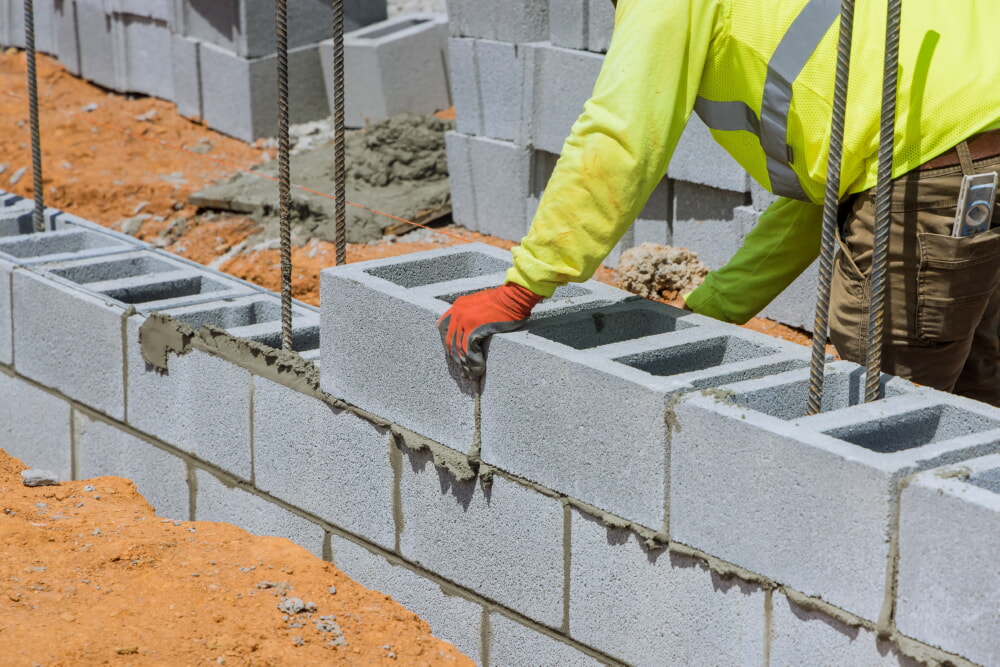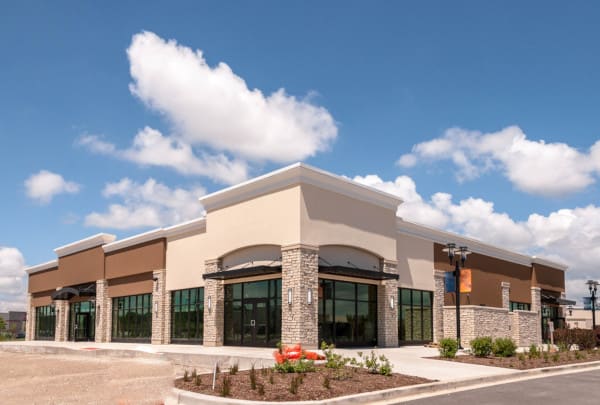Masonry Industry
naics code 238140
Hand Tools

Masonry Industry
Government workers use the U.S. NAICS industry code 238140 for masonry contractors. Much of the industry is supported by residential building activities and downstream markets. While residential construction was robust, it tapered off during and after 2020 because of Covid-19 and, in 2021, inflation and increased interest rates.
However, pundits expect the masonry industry to grow steadily from 2022 through 2027 for the nonresidential sector. As the commercial sector recovers from Covid-19 and speeds up, masonry contractors will see plenty of growth. According to IBISWorld, the market size is $29 billion and supports 94,256 businesses that employ 208,212 employees.
Masonry contractors need the tools and personal protective equipment that Abolox carries, including chemical resistant gear and face protection. Workers are subject to eye injuries, chemical burns, cuts and other issues. Abolox carries gloves, eye protection and hand tools commonly used in the masonry industry.
Employment and Occupations
The masonry industry has over 302,000 masonry workers in the United States, according to the Bureau of Labor Statistics (BLS). The type of employment for most of these workers include brick masons, block masons, cement masons, concrete finishers, stone masons, and terrazzo workers and finishers, with over 200,400 being cement masons and concrete finishers.
Over 150,000 workers work in general masonry construction in the commercial and residential sectors.
Masonry Contractors
Because masonry requires hand-eye coordination and excellent vision, the chance of masons being replaced by machines isn’t very high – at least not in the next several years. Types of masonry contractors include:
- Cement masons.
- Brick masons.
- Stonemasons.
- Terrazzo masons.
All types of masons are exposed to weather, hazardous substances and tools that could cause injury, including cuts, scrapes, lacerations, bruises, and chemical burns. Having the correct tools and proper safety gear reduces the risk of injury for all types of masons.
Work Activities
Whether building a residential home or a huge skyscraper, masons share the same job activities. Some of the activities masons do while on the job include:
- Adjust the surface to get rid of imperfections.
- Attach brick and stone to structures.
- Work with marble and epoxy.
- Build concrete columns, beams and forms.
- Chiseling.
- Cleaning mixers and extra mortar.
- Coloring stones and cement.
- Building and repairing walls, chimneys, kilns and furnaces.
- Cutting material, including brick, tile and stone.
- Building trestle scaffolding.
- Grinding mortar.
- Laying pavers.
- Lifting and carrying heavy materials.
- Working with mortar and ground.
- Polishing and sanding surfaces.
- Setting stone.
- Working with grout, grout sealants, caulking and coatings.
- Using crowbars, sledgehammers and other tools.
All of these activities require tools and personal protective equipment that is often expensive. Abolox carries much of what a mason contractor needs for less than other suppliers. You’ll find that our tools and safety gear are top-quality goods and that we carry well-known brands.
Tools and Materials
Working with tools and chemicals can be hazardous to your physical being. Even a simple screwdriver could slip and stab you. Abolox not only carries the tools a mason needs but also carries personal protective equipment that keeps workers safe. Some of the common tools in a mason’s toolbox include:
- Brick glue.
- Anchors.
- Brick hammers.
- Brushes.
- Drill bits.
- Chisels.
- Jointers.
- Levels.
- Saws.
- Nails.
- Screws.
- Caulk.
- Sealers.
- Trowels.
- Wall ties.
Since masons use their hands to place objects and feel whether something is level, they need PPE to protect their hands.
They also need to protect their hands from the harsh materials they use, including adobe, brick, cast stone, concrete blocks, glass blocks, manufactured and natural stone, mortar, Portland cement, stucco, tile and terra cotta.
Safety in the Masonry Industry
Protecting yourself as a mason is essential – many of the accidents and injuries that happen in the construction industry happen to masons because of the tools and materials they work with. About 35 percent of those in the industry suffer from work-related injuries. Of that number, 30 percent suffer injuries from working with material, 10 percent suffer from lacerations and cuts, and 21 percent involve injuries to the arms and hands. Masons are ranked 8th for eye injuries.
Some of the safety gear masons should wear while on the job includes:
- Face shields.
- Goggles and safety glasses.
- Steel toe boots.
- High-visibility clothing.
- Work gloves that protect against impact, chemicals and cuts.
- Hard hats.
- Ventilators.
- Gloves.
- Windburn and injuries caused by the wind blowing dust and debris around.
p>Some of the injuries a mason could suffer include cuts, crush injuries, impact injuries, lacerations, injuries from dropped objects, dust, hazardous substances, heat stress, impaired vision, and accidents because of poor visibility.
Visit Abolox
As a contractor or an employee of a contractor, you should have the tools and equipment required to do your job, including safety equipment to protect yourself from the hazards of the job. Abolox carries a variety of tools and personal protective equipment that meet industry standards.
If you don’t see something you need, call the office, as we can source most tools and safety equipment for you. Some of our products come in bulk. If you see something you need in bulk that is not offered on our site, contact the office.
